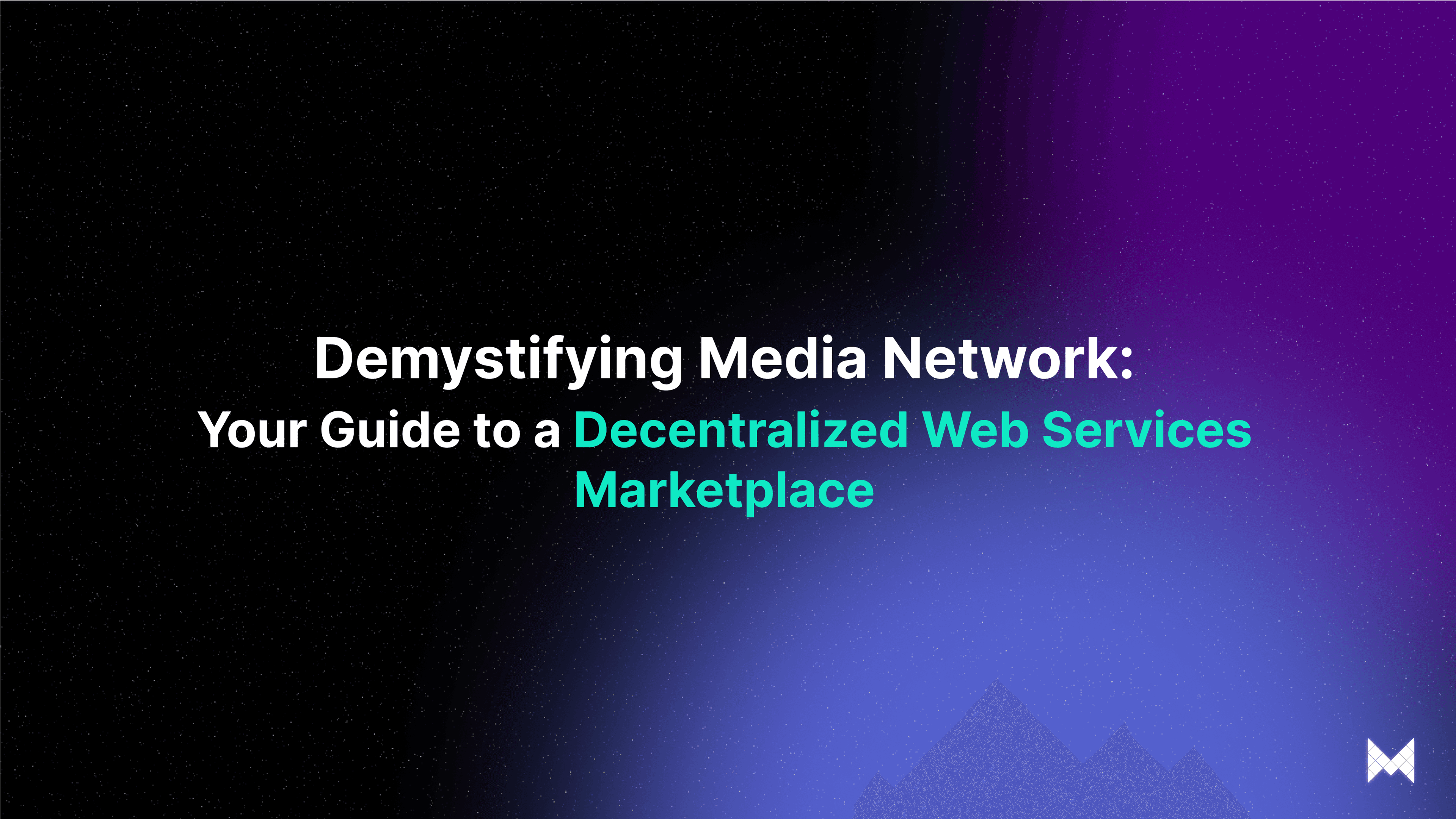Demystifying Media Network: Your Guide to a Decentralized Web Services Marketplace

To make the concept of Media Network more accessible, we've curated a collection of the most frequently asked questions about this decentralized web services marketplace.
This article aims to serve as an informative guide, helping you navigate the intricate elements of the Media Network, its unique features, and its operational mechanics. Through this educational journey structured in a question-answer format, our goal is to shed light on the pivotal aspects of the Media Network, thereby empowering you to harness the full potential of the protocol. So, let's delve into the fascinating world of decentralized web services, one question at a time.
1. What is Media Network and how does it differ from traditional web services?
Media Network is a trustless protocol that harnesses the power of the MEDIA token to create a decentralized marketplace for web services.
Unlike centralized services like Amazon Web Services (AWS) or Google Cloud, which may impose specific terms of service or regional restrictions, Media Network allows users to buy and sell web services without limitations. This freedom encourages a diverse range of providers and clients to participate in the marketplace. By relying on a distributed network rather than a single entity, Media Network reduces the risk of outages and mitigates the influence of any single provider.
2. What is the vision of Media Network for the web services ecosystem?
Media Network aims to establish a decentralized web services ecosystem that connects providers and clients while eliminating the risk of censorship. The platform, which initially focuses on Content Delivery Network (CDN) services, plans to expand its offerings over the next five years to include a comprehensive suite of web services. These include Virtual Private Servers (VPS), dedicated servers, databases, cloud computing, and more, all integrated into a single platform that leverages the advantages of decentralization.
The smart contracts used by Media Network, initially designed for CDN services, have been crafted to accommodate other web services in the long term.
3. How does Media Network ensure security and fairness in transactions?
Media Network uses blockchain technology and smart contracts to ensure a secure and transparent environment for both providers and clients. Smart contracts automate the process of buying and selling web services, making transactions more efficient and reducing the possibility of fraud or disputes. Additionally, the terms of agreements are encoded on the blockchain and are immutable, binding all parties to the contract. This approach guarantees that transactions are conducted fairly and that the products and services provided are unalterable and enduring.
4. What is a Content Delivery Network (CDN), and how does Media Network's CDN marketplace leverage it?
A Content Delivery Network (CDN) is a global network of servers stationed at various data centers, designed to swiftly serve users with digital assets such as web pages, images, videos, etc. Its primary objective is to decrease latency, enhance content accessibility to users by placing the data closer to them.
Media Network's CDN marketplace uses the power of smart contracts to create a secure and reliable connection between providers offering CDN services and clients who need them. This approach allows clients to explore and compare offerings from multiple service providers, promoting healthy competition among providers, and helping all parties involved.
5. How does a CDN improve website performance?
A CDN improves website performance by caching files and serving them directly to users rather than sending each request to the origin server. By considering the user's geographic location, the CDN serves the files from the closest server, reducing latency and improving the user experience. The implementation of a CDN results in advantages such as faster load times, enhanced scalability, improved security measures, reduced bandwidth expenses, increased availability, and an overall better user experience.
6. How is Media Network changing the CDN industry?
Media Network is shaking up the CDN industry by allowing providers of all sizes to connect directly with clients, offer services, and earn rewards for their contributions to the protocol. This approach creates a level playing field where customers can access the best options and find the perfect service to suit their needs.
Media Network provides equal opportunities for all providers to drive innovation and deliver the best possible experience to their customers. In this way, they aim not just to change the CDN industry but redefine it.
About Media Network
Media Network is a decentralized hub for web services, connecting providers and clients through smart contracts. Anchored on Media Protocol.
Press Contact
marketing@media.foundation